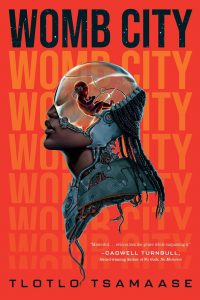Paul Di Filippo reviews Carter Scholz
Gypsy Plus…, by Carter Scholz (PM Press 978-1-62963-118-9, $13, 160pp, trade paperback) November 2015
 To examine the forty-year-long bibliography of Carter Scholz at ISFDB is to dream of alternate timelines. First, a continuum where, perhaps, circumstances—interior and exterior to the author—allowed Scholz to produce a far greater amount of fiction than the modestly substantial amount on display. But also we can imagine a timeline where this exact same CV in all its glory has drawn the notice of myriad critics and fans, and thus elevated Scholz to the stratosphere of literary acclaim due to his grace, sophistication, and unflinchingly bravura storytelling.
To examine the forty-year-long bibliography of Carter Scholz at ISFDB is to dream of alternate timelines. First, a continuum where, perhaps, circumstances—interior and exterior to the author—allowed Scholz to produce a far greater amount of fiction than the modestly substantial amount on display. But also we can imagine a timeline where this exact same CV in all its glory has drawn the notice of myriad critics and fans, and thus elevated Scholz to the stratosphere of literary acclaim due to his grace, sophistication, and unflinchingly bravura storytelling.
But, alas, our genre is full of unsung geniuses—at least, unsung in the mainstream world. R. A. Lafferty, David Bunch, Avram Davidson, Carol Emshwiller, where are your laurels? If Scholz is keeping company with these illustrious peers and forebears, he is already in as magnificent a legion as any writer could want.
Scholz’s new book—a short novel, two stories, an essay, and an interview—appears from PM Press, a publisher with a progressive slant who has been dipping a toe into science fiction under the auspices of curator Terry Bisson. They’ve published Le Guin, John Shirley, Eleanor Arnason, Rudy Rucker, Karen Joy Fowler, and the VanderMeers, among others, so Scholz shares eminent stablemates.
Gypsy is the tale of a meticulously rendered but kludgy slower-than-light starship fleeing a systems-crashing totalitarian Earth. As that synopsis might foreshadow, the tale is not a barrel of laughs. To cut to the chase, the starship mission fails. Or does it? Scholz gives us a devastating tale where an admirable, almost superhuman heroism does not result in a clear-cut victory—or any conventional victory at all—but rather in a spiritual or symbolical triumph amidst ashes, rendered all the more laudable by a kind of defiant, Battle of Thermopylae stubbornness and clarity of purpose.
We start out with a devastating portrait of our planet, ecological and cultural, circa the 2040s. All the harshest physical and sociopolitical trends we can see in 2015 have been accelerated and pushed to the max. Even the invention of clean practical fusion power has been subverted and denied. The Earth and human civilization seems to be circling the drain. “Its failures, its cruelties, its grandeurs, its aspirations—all extirpated to the root, in a fury of self-loathing that fed on what it destroyed.”
Now, you can argue whether this is a likely future or not. But you cannot argue with the forcefulness and almost cyberpunkian ingenuity with which Scholz builds this future. In minute detail, he illustrates all our “poison poetry of ruin and catastrophe and longing.” Fittingly for a writer who came of age in the 1970s, he harks back to the great quartet of doomsday novels by John Brunner. But he layers on four additional decades of bad news and disappointments.
Having established this background, he foregrounds scientist Roger Fry and his sixteen compatriots. These are the core plotters who want to build, with stolen materials, and to launch, all in secret, the starship Gypsy to Alpha Centauri. (Shades of another Seventies icon, Jefferson Starship’s Blows Against the Empire.) Our point of view lies mainly onboard the failing ship as a succession of “stewards” are awakened from cold sleep during crisis points in the ship’s 80-year-plus journey. These travelers are particularized with an incredible depth of character seldom found in most science fiction. And despite plot-addicted naysayers among fandom, such deep persona-building is hardly wasted effort, as each starfarer’s nature determines how they handle each crisis. And we get similar treatment of Fry, who we learn early on has been captured by the authorities and left behind when Gypsy takes off.
Ultimately, in an unforeseen ending, the efforts of the Gypsy and crew are proven to amount to that of a beacon guttering into extinction while having done its job of both lighting the ship of Earth to safe harbor and also thumbing its nose at the dominant paradigm of greed and indifference and materialistic anhedonia that has wrought so much ill over the past several centuries. A “tiny splinter of human will forge through vast, uncaring space.”
Obviously, this book stands in dialogue with such recent novels as Kim Stanley Robinson’s Aurora and Neal Stephenson’s Seveneves, and with Barry Malzberg’s classic Galaxies. But much starker and existential even than those, it is primarily an anti-space-opera, if you will, a charnel-ground meditation on what lies at the end of all efforts.
Following this knockout story, the shorter works agreeably extend our feel for Scholz’s talents without necessarily magnifying his scope.
“The Nine Billion Names of God” is an epistolary metatextual tale about an SF writer with a manic idea. It references Borges explicitly, and lives up to that high standard. “Bad Pennies” is told adroitly in the form a Congressional interrogation, and reads like the economic SF of Mack Reynolds as filtered through the modernist sensibilities of William Gaddis. This is a Good Thing.
The essay on “The United States of Impunity” offers a by-now-all-too-familiar chronicle of the major missteps taken by our government and corporate citizens since 9/11. Impassioned yet somewhat predictable at this late date, it would benefit from an extension that looked at matters, for good or ill, after 2008.
Finally, the happy, playful dialogue between Bisson and Scholz reveals a writer at ease with himself and the world, still casting about for new themes and topics and techniques after his masterly achievements.
This world of ours might not be the one where Scholz had his ideal career. But it is the one world we can be certain is lucky enough to have him around.





